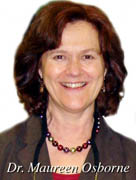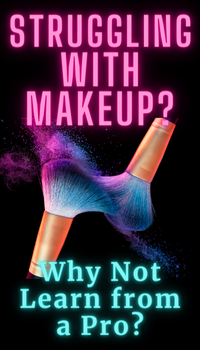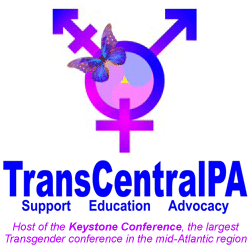Welcome Dr. Maureen Osborne

Checking in with Osbo’s Bridge Club
Greetings to members and friends of the transgender community! I am pleased to introduce my monthly column written from the perspective of a therapist specializing in gender identity issues. My plan is to write on topics that are of interest to transgender folks and their loved ones, sharing my knowledge and experience from working with this community for the past 16 years. I have learned much from walking on this path with my clients, and my goal is to put that experience into words that can provoke further thought and dialogue. Although research is important and useful, the reflections in this space will more often rely on my own clinical observations, seen through the lens of a psychologist trained 30 years ago in what was called the “scientist/practitioner model.”
For those of you who do not know me, my name is Maureen Osborne. I am a clinical psychologist in private practice in Malvern, Pennsylvania. I did not have any exposure to transgender clients in my practice until 1992, when a 50 year old married father of two entered my office saying that he believed himself to be a transsexual, after watching a Phil Donahue show on the topic (back before Oprah, Phil was kicked out of television for being too controversial). With only basic training in psychology (Ph. D. from University of Missouri-St. Louis in 1984), in human sexuality (with Masters and Johnson in St. Louis) and a willingness to learn all that I could, I therein began my career as a gender identity specialist, aided by the patience and knowledge of my wonderful clients.
My theoretical orientation as a therapist arises from the field of “contextual family therapy.” Among other principles, this perspective relies on the particular family and experiential context that each person in a relationship brings to the table. In that spirit, I will tell you a bit about my own personal context, cribbing shamelessly from a paper I delivered at an IFGE Conference in 2003 entitled Beyond Gatekeeping: Truth and Trust in Therapy with Transsexuals.
I am a middle-aged clinical psychologist, trained in the late 1970s, married 28 years, with a 23 year old daughter and a 22 year old son. I like the self-description: “straight, but not narrow.” With the exception of a notorious annual neighborhood Halloween karaoke party at which my husband and I have performed crossdressed along with friends, neither I, nor any member of my immediate family has ever to my knowledge experienced any ambivalence or confusion about gender identity. Although I would characterize myself as a feminist, I can also say without hesitation that I “enjoy being a girl.” I say this with the pained knowledge that my gender comfort is a gift not available to everybody. And it has only been in the past 16 years that I have come to understand that the assumptions about the gender binary that most people take for granted are, in fact, far less clear-cut than I ever imagined.
So, you might ask, how does an average hockey/lacrosse mom like me end up spending a good portion of her professional life working with the transgender community? I don’t know how it’s been for other clinicians in this field, and I doubt that I can give a fully satisfying answer. I can only say that I have held a lifelong concern for justice issues in human relations, whether at the level of global politics, or in the microcosm of family dynamics. As the famous psychologist Harry Stack Sullivan said of his work with schizophrenics, “We are all more simply human than otherwise.” As an adolescent, I grew to question dogma and the status quo, especially when it did not conform to my own lived experience, or when people suffered as a consequence.
Growing up in a large working class family, I often felt the sting of judgment from my more affluent classmates, and I saw the pecking order reproduced in my own family’s biased attitudes toward racial minorities. In my spiritual development, I abandoned my childhood Catholic religion and found a home in the Unitarian Universalist faith, whose principles and purposes affirm “the inherent worth and dignity of every person.”
With that introduction to me, I invite you to vicariously join a therapy group I have had the privilege to facilitate for the past 15 years, named by its members “Osbo’s Bridge Club.” We meet once a month to “check in” with each other on recent life events and to discuss a predetermined topic of interest to members, covering areas from family to sexuality to personal identity to stress management, etc. In that spirit, I welcome any and all topics that readers of this column might suggest to me, as long as they can be broadly applied, as opposed to uniquely personal concerns. Just to get us started, I will announce next month’s topic, which has been a lively topic of discussion in the WPATH professional forum of late. It concerns the therapy and RLE requirement of the Standards of Care. There is considerable controversy regarding this topic, so we might as well start out with a bang. Welcome aboard!
Category: Transgender Body & Soul











Dr Osborne, Welcome! Being a T-person is the easy part for me! Being Human is much harder. I wonder about some of the people I have meet while attending therapy with the two therapist that iI had found. It seems like for a few of them that their decision to have the operation overrides every thing else! A few of them seem to have with in one year discarded their children, wife, and everything else because They decided that Transitioning and getting SRS is the Only Goal and I’m going to get it!!! (Very masculine behavior) It seems to come as a shock to them that they still are the same person and have the same or more problems. Have you observed that ?
I’m interested in seeing how this progesses. I know that sounds cold and clinical but I can’t think of any other way to write it without sounding tooo ditzy!
South Carolina has some gender therapists but they are as scarce as hens teeth so any enlightenment is welcome.
Linda E. Woodworth
I am excited to hopefully spend some time with you Dr. Osborne at Fantasia Fair — our paths have crossed before, but your workshop titles sound GREAT! Living in Connecticut, the availability of competent transgender savvy therapists is few and far between.
-Barbara Curry